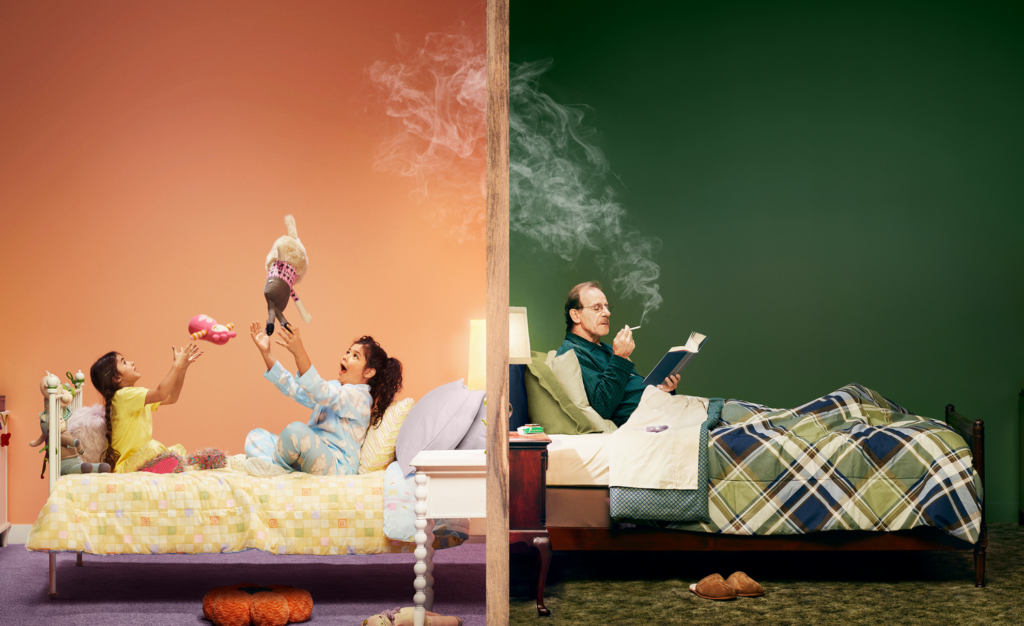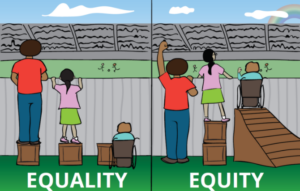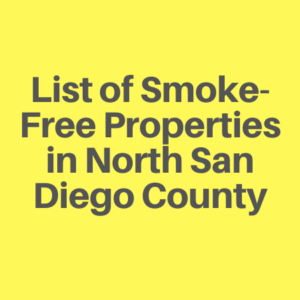
If you live in multi-unit housing, there is a good chance you might be breathing in your neighbors’ secondhand smoke. While there are many protections for people where they work and play, protections in multi-unit housing are lacking. Secondhand smoke can drift from one unit to another through windows, walls, pipes and electrical outlets. People can also be exposed to thirdhand smoke. Thirdhand smoke is the residue from cigarettes, e-cigarettes and vaping devices that sticks to nearby surfaces. These chemicals cling to walls, carpets, clothes and hair and can actually become more toxic over time.
What is Multi-Family Housing?
Multi-family housing means property containing two (2) or more units, including, but not limited to, apartment buildings, condominium complexes, senior and assisted living facilities, and long-term health care facilities. Multi-family housing does not include hotels/motels, campgrounds, mobile homes, single-family homes or single-family homes with a detached or attached in-law or second unit.
- Protects non-smokers from involuntary exposure to the dangers of secondhand smoke
- Lowers risk factors for respiratory disease, cancer and other health conditions in vulnerable populations such as children, pregnant women, seniors, and those with underlining chronic health conditions such as heart disease or other cancers
- Reduces cigarette butt litter and other tobacco waste
- Protect pets from exposure to secondhand smoke and thirdhand smoke
- Reduces the risk of house fires caused by cigarettes or e-cigarette batteries
- Saves property owners and manager money via insurance savings, reduced costs for cleaning/maintenance and lower turnover
- Encourages people to quit smoking/vaping or reduce their use
Helping Communities Achieve Health Equity
 By creating smoke-free multi-family housing, communities can provide an opportunity for everyone to live smoke-free, regardless of economic means, race, or ethnicity. We all deserve clean, fresh air at home, making smoke-free policies in multi-family housing all the more important. People living in a house shouldn’t be the only ones with this benefit. In fact, 52% of San Diego County residents live in multi-unit housing (SANDAG, U.S. Census Bureau, 2016).
By creating smoke-free multi-family housing, communities can provide an opportunity for everyone to live smoke-free, regardless of economic means, race, or ethnicity. We all deserve clean, fresh air at home, making smoke-free policies in multi-family housing all the more important. People living in a house shouldn’t be the only ones with this benefit. In fact, 52% of San Diego County residents live in multi-unit housing (SANDAG, U.S. Census Bureau, 2016).
Many residents may have limited options of where they can live. Moving from property to property can have long-term consequences such as negatively impacting employment and children’s educational achievement. Creating smoke-free environments will improve health equity of all those who live in, work in, and visit these communities.
Read more about creating health equity at home with smoke-free policies: English & Spanish.
Are you experiencing secondhand smoke or vape drifting into your home?
 You may be able to participate in our PurpleAir Monitor Lending Program. PurpleAir monitors are devices that measure particles in the air inside or outside of your home from dust, pollution, smoke, and other sources. The data are collected in real time and can be viewed online at any time. Levels of air pollutants and their potential spikes can be downloaded and graphed to check for any commonalities between recorded pollution level and noted exposure to smoke.
You may be able to participate in our PurpleAir Monitor Lending Program. PurpleAir monitors are devices that measure particles in the air inside or outside of your home from dust, pollution, smoke, and other sources. The data are collected in real time and can be viewed online at any time. Levels of air pollutants and their potential spikes can be downloaded and graphed to check for any commonalities between recorded pollution level and noted exposure to smoke.
The lending program is for individuals who are experiencing secondhand smoke exposure at home. You can use the monitors to collect information to advocate for a smoke-free policy or stronger enforcement for an existing policy in your multi-family community.
To learn more about PurpleAir Monitors, watch our instructional video here.
Resources are available for the following:
Owners & Managers, Residents and Governments & Policy Makers, List of Smoke-Free Properties in North San Diego County. Click below for more information.
Vista Community Clinic Tobacco Program staff can provide support to including step-by-steps guides, sample policies, useful resources and a list of properties in North San Diego County with voluntary policies.
How can I get more information about turning my multi-unit housing complex smoke-free?
Contact Lorenzo Ricardez, Program Supervisor at [email protected] or 760-631-5000 ext. 7166

Follow us on Facebook @vcctobacco for resources, information, local, state and national tobacco-related news and upcoming events and trainings
Follow us on Instagram & Youtube @sdstayinformed to stay up-to-date on VCC Tobacco Control events, news and facts





